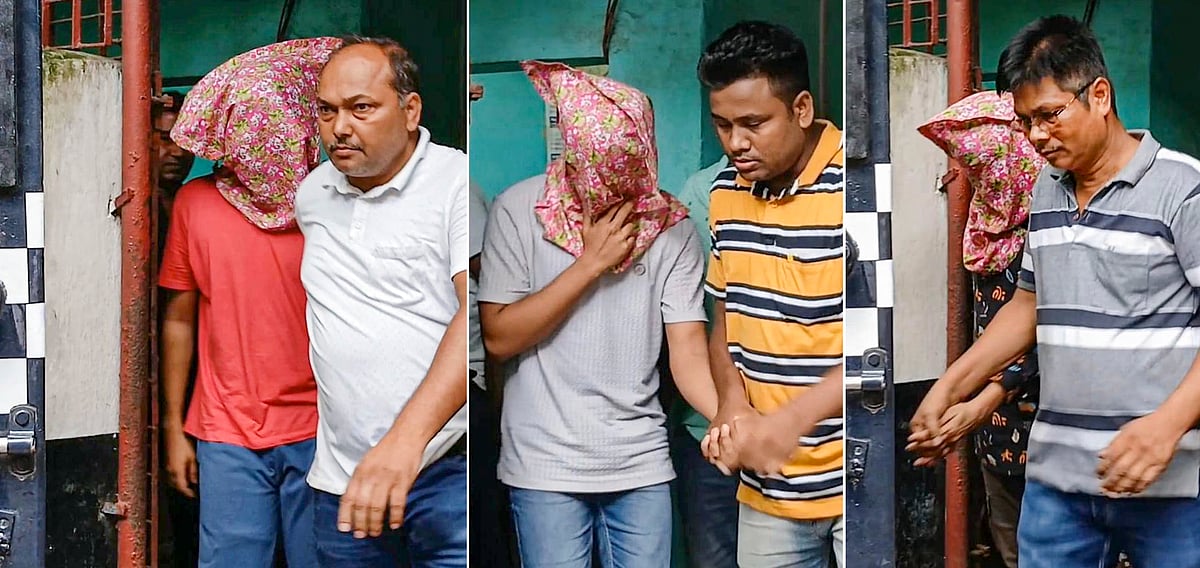 |
|
The recent case of a brutal assault and rape within the South Calcutta Law College in Kasba has reignited concerns about safety and security, particularly for women, within educational institutions. This incident, occurring less than a year after the harrowing rape and murder of a junior doctor at the R G Kar Medical College & Hospital, underscores a deeply troubling pattern of violence and impunity. The details of the assault, as reported in the victim's complaint, paint a disturbing picture of premeditation, coercion, and the exploitation of power dynamics. The involvement of individuals allegedly linked to the Trinamool Congress Chhatra Parishad (TMCP) further complicates the matter, raising questions about political influence and potential interference in the investigation. The incident allegedly occurred on June 25th, between 7:30 p.m. and 10:50 p.m., within the college premises. The prime accused, Manojit Mishra, a 31-year-old former student, along with Zaib Ahmed (19) and Pramit Mukhopadhyay (20), both current students, have been arrested and remanded to police custody until July 1st. The survivor's account details a scenario where Mishra lured her to a room adjacent to the college union office under the guise of offering her a position as the General Secretary of the college's girls' department. This initial deception sets the stage for the subsequent coercion and violence. Once in the room, Mishra reportedly proposed marriage to the victim, stating his intent to "test her loyalty." The victim's rejection of the proposal, coupled with her disclosure of having a boyfriend, triggered a chain of events that culminated in a brutal sexual assault. The complaint further alleges that Mishra forcibly moved the victim to another room adjacent to a bathroom, where he subjected her to the assault while the other two accused stood guard outside, preventing her escape. The chilling detail of the college security guard's attempt to intervene, only to be assaulted and chased away by the co-accused, highlights the vulnerability of the victim and the brazenness of the perpetrators. This incident exposes a critical failure in the college's security protocols and raises serious questions about the safety measures in place to protect students, especially female students, on campus.
The legal ramifications of this case are significant, encompassing charges of rape, assault, and potentially conspiracy. The investigation will likely focus on gathering corroborating evidence, including forensic analysis, witness testimonies, and security footage, to build a strong case against the accused. The involvement of individuals allegedly connected to the TMCP introduces a layer of political complexity, potentially leading to allegations of bias or interference. It is crucial that the investigation be conducted impartially and transparently to ensure that justice is served. The survivors account and the police investigation should reveal whether this was a premeditated act involving others at the institution. The Alipore court's decision to remand the accused to police custody until July 1st suggests that the authorities are treating the case with utmost seriousness. However, the ultimate outcome will depend on the strength of the evidence presented and the integrity of the legal process. Beyond the immediate legal proceedings, this incident raises broader questions about the prevalence of sexual violence in educational settings and the need for comprehensive prevention and response strategies. Colleges and universities have a responsibility to create a safe and supportive environment for all students, free from the threat of violence and harassment. This includes implementing robust security measures, providing comprehensive training on sexual assault prevention, and establishing clear reporting mechanisms for victims. Furthermore, it is essential to address the underlying cultural attitudes and beliefs that contribute to sexual violence. This requires engaging students, faculty, and staff in open and honest conversations about consent, respect, and gender equality. Educational institutions must also work to create a culture of accountability, where perpetrators are held responsible for their actions and survivors are provided with the support and resources they need to heal and recover.
The media's role in reporting on cases of sexual violence is also crucial. It is important to strike a balance between informing the public and protecting the privacy and dignity of the survivor. Sensationalizing the details of the assault or identifying the victim can have devastating consequences, hindering their healing process and potentially discouraging other victims from coming forward. The focus should instead be on holding perpetrators accountable, highlighting systemic issues, and advocating for policy changes that prevent future incidents. In the aftermath of the R G Kar Medical College & Hospital case, there was widespread public outrage and demands for justice. This case must serve as a catalyst for meaningful change, prompting colleges and universities to prioritize the safety and well-being of their students. It is imperative that educational institutions adopt a zero-tolerance policy towards sexual violence and create a culture of respect and equality. The political implications of this incident cannot be ignored. The alleged involvement of individuals linked to the TMCP raises questions about the party's commitment to combating sexual violence and protecting the safety of women. It is incumbent upon political leaders to condemn such acts unequivocally and to take concrete steps to prevent future occurrences. Failure to do so will only perpetuate a culture of impunity and further erode public trust. The case also throws into sharp relief the critical need for effective support systems for survivors of sexual violence. This includes access to counseling, medical care, and legal assistance. Survivors often face significant challenges in navigating the legal system and accessing the resources they need to heal and rebuild their lives. It is essential that these support systems are readily available and accessible to all survivors, regardless of their background or circumstances. The Kolkata rape case is not an isolated incident; it is a symptom of a larger societal problem. Addressing this problem requires a multi-faceted approach that includes prevention, accountability, and support for survivors. It is time for a collective effort to create a society where all individuals are safe and free from the threat of sexual violence.
